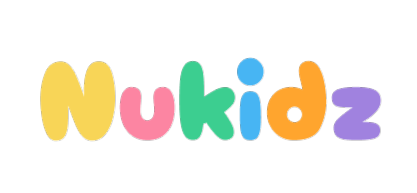P
Welcome, Wonderous Parents! 🌈 Let’s talk about the incredible journey of raising our little ones. Imagine your child’s brain as a supercharged engine ready to soak up knowledge and make all those important connections. You, as the captain of this adventure, have a crucial map – nutrition. This blog is here to guide you through the simple secrets of how the right foods can supercharge your child’s brain for optimal growth. So, grab a comfy seat, your favourite drink, and let’s unravel the wonders of early brain development together! 🚀🧠✨
Introduction
I. Why Early Brain Development is Super Important
- A. Little brains, big impact: Understanding the importance of the first few years in shaping a child’s cognitive abilities.
- B. Growing up milestones: Highlighting key developmental stages and their impact on future learning and behavior.
- C. Lifelong effects: Exploring how early brain development influences academic achievements, emotional resilience, and overall life outcomes.
II. Foods that Supercharge Growing Brains
- A. Omega-3 buddies: These healthy fats help our kids’ brains connect and work better.
- B. Iron heroes: Talking about how iron helps avoid brain problems and supports awesome brain growth.
- C. Vitamin D sunshine: Explaining why this vitamin is like a sunshine boost for their brains.
- D. Protein power: Showing how protein helps build and fix brain parts during the childhood years.
III. Tiny Nutrients, Big Brain Boosters
- A. Zinc zappers: Checking out how zinc helps with memory and focus.
- B. Choline champ: Exploring how choline is a big helper for baby brain building.
- C. Antioxidant defenders: Understanding how antioxidants protect their brains from stress.
IV. Dietary Patterns and Cognitive Development
- A. Breastfeeding magic: Analyzing the unique benefits of breastfeeding for early brain development and cognitive outcomes.
- B. Solid food adventures: Exploring the importance of a diverse and nutritious diet as children transition to solid foods.
- C. Happy mealtimes: How positive feeding and a loving environment make a big difference.
V. Handling Food Challenges Like a Pro Parent
- A. Childhood Obesity and Brain Health: Looking at how being overweight as a kid might affect how well the brain works, and figuring out ways to stop it from happening.
- B. Not Having Enough Food: Talking about how not having enough good food when you’re young can make your brain not develop as well, and suggesting ways to help.
- C. Eating the Right Stuff: Giving easy tips for parents to make sure their kids eat the right things to help their brains grow well.
So, there you have it – a sneak peek into the food and brain connection for effective parenting. By choosing the right foods, we can give our kids a head start for a smart and happy future!
The Growing Brain – The Developmental Odyssey
- Embarking on the Journey of Brain Development
- Starting the Journey:
- Think of your child’s early years as the beginning of a fantastic adventure for their brain.
- This is when the groundwork is laid, like planting seeds for future thinking and feeling abilities.
- Building the Foundation:
- Consider these early years as the construction phase for a strong and smart base.
- It’s like building a sturdy platform that supports your child’s cognitive and emotional development.
- Forming Brain Pathways:
- Visualize the brain developing intricate pathways during this odyssey, creating connections that aid learning and understanding.
- These pathways are like roads that help their thoughts and emotions travel smoothly.
2. Cognitive Skills and Emotional Regulation
- Sailing Through Skills:
- Envision sailing through the sea of cognitive skills, where your child picks up tools to understand the world.
- It’s like giving them a set of cool skills, such as problem-solving and memory, that make their brain stronger.
- Emotional Compass:
- Help your child develop an emotional compass, a guide for navigating through different feelings.
- This compass empowers them to understand and manage emotions, turning them into confident emotional navigators.
- Being the Captain of Emotions:
- Encourage your child to be the captain of their emotional ship.
- This means steering through happy and challenging moments with skills they’ve learned, fostering resilience and self-awareness.
In simpler terms, we’re talking about the exciting journey of building a strong brain foundation and providing the tools needed for smart thinking and balanced emotions. It’s like setting them on a course for a happy and successful life adventure!
Nutrients for Nurturing Minds
- Essential Brain Foods:
- Think of these as the superhero foods that help your child’s brain grow and function well.
- Examples include fish rich in omega-3, eggs, nuts, and leafy greens.
- Iron for Brain Power:
- Iron is like a superhero nutrient that helps prevent brain problems and supports awesome brain growth.
- Foods like lean meats, beans, and fortified cereals are iron-rich and great for their growing minds.
- Vitamin D Sunshine Boost:
- Picture vitamin D as a sunshine boost for their brains, making sure everything works smoothly.
- Get this vitamin from sunlight, fortified milk, and certain fish to keep their brains happy and healthy.
- Protein Building Blocks:
- Protein is like the building blocks for their brain, helping to build and fix important brain parts.
- Include sources like lean meat, poultry, fish, eggs, dairy, beans, and nuts in their diet.
In simple words, it’s like serving up a plate of superhero foods – omega-3, iron, vitamin D, and protein – to ensure your child’s brain gets the best nourishment for optimal growth and development. It’s like providing the right fuel for their smart and happy minds!
Building a Brain-Boosting Diet
- Age-Appropriate Recommendations – Infants, Toddlers, Preschoolers:
- Infants (0-12 months):
- Breast milk or formula is their main source of brain-building nutrients.
- Introduce solid foods gradually, starting with soft and mashed options.
- Toddlers (1-3 years):
- Include a variety of foods from all food groups for balanced nutrition.
- Encourage self-feeding with safe and easy-to-handle finger foods.
- Preschoolers (3-5 years):
- Build on their preferences with a mix of fruits, veggies, whole grains, and proteins.
- Keep portions appropriate for their size and energy needs.
- Infants (0-12 months):
- Meal Planning Strategies:
- Colourful Variety:
- Aim for a colourful plate with a mix of fruits and vegetables for diverse nutrients.
- Think of each colour as a different nutrient superhero for their brain.
- Balanced Meals:
- Include a mix of carbohydrates, proteins, and healthy fats in their meals.
- This balance helps sustain their energy and supports brain function.
- Hydration Matters:
- Ensure they stay hydrated with water throughout the day.
- Hydration is crucial for overall health, including brain function.
- Colourful Variety:
- Addressing Challenges – Picky Eating and Food Aversions:
- Fun Presentation:
- Make meals visually appealing with creative presentations to spark interest.
- Turn veggies into colourful shapes or create food art to make eating exciting.
- Involvement in Cooking:
- Involve them in simple cooking tasks to build a connection with food.
- This engagement often encourages a positive attitude towards trying new foods.
- Patience and Encouragement:
- Be patient with their preferences and encourage them to explore new flavours.
- Positive reinforcement and praise for trying new foods can make a big difference.
- Fun Presentation:
In simpler terms, it’s like crafting a brain-boosting menu that suits your child’s age, involving a variety of colourful foods and incorporating strategies to overcome picky eating challenges. It’s all about making mealtimes fun, balanced, and filled with positive experiences!
Empowering Parents
- Understanding Nutrient-Rich Choices:
- Identify superhero foods that are rich in nutrients for your child’s growing brain.
- Examples include fruits, vegetables, whole grains, lean proteins, and dairy.
- Grocery Shopping Smartly:
- Create a shopping list that includes a variety of nutrient-packed foods.
- Stick to the outer aisles of the grocery store where fresh produce and essential items are usually found.
- Meal Prep Made Easy:
- Plan simple and balanced meals ahead of time to reduce stress during busy days.
- Involve the family in meal preparation to create a sense of shared responsibility.
Family Mealtimes
- Creating a Positive Environment:
- Set a pleasant atmosphere during meals with good conversation and a relaxed vibe.
- Avoid distractions like TV or gadgets to encourage mindful eating and family bonding.
- Modeling Healthy Habits:
- Be a role model by demonstrating healthy eating habits.
- Children often follow the example set by their parents, so make nutritious choices together.
- Encouraging Open Communication:
- Foster open communication during meals to understand your child’s preferences and concerns.
- Encourage them to express their thoughts on different foods without pressure.
Resources for Support
- Online Nutrition Guides:
- Explore reliable online resources that provide helpful nutrition information.
- Websites or apps with easy-to-understand tips can support your journey in making informed choices.
- Community Support Groups:
- Join local parenting or nutrition groups to connect with other parents facing similar challenges.
- Sharing experiences and tips can provide a sense of community and encouragement.
- Consulting Healthcare Professionals:
- Schedule regular check-ups with healthcare professionals for personalized advice.
- Doctors, dietitians, or nutritionists can offer guidance tailored to your child’s specific needs.
In simpler words, empowering parents involves making smart choices while grocery shopping, creating positive family mealtime experiences, and accessing supportive resources. By incorporating nutritious foods and fostering a healthy environment, parents can play a vital role in their child’s overall well-being and development.
Examples
- Superhero Breakfast:
- Start the day with a colorful bowl of oatmeal topped with berries for brain-boosting antioxidants.
- Include a glass of fortified milk to provide essential nutrients like calcium and vitamin D.
- Veggie Power Snack:
- Slice up colorful veggies like bell peppers and cucumbers for a crunchy and nutrient-packed snack.
- Pair with a yogurt dip for added protein and calcium.
- Protein-Packed Dinner:
- Serve lean proteins like grilled chicken or fish for a satisfying and brain-nourishing dinner.
- Include a side of whole grains, such as brown rice or quinoa, for added fiber and energy.
Conclusion
In the joyful world of parenting, creating a brain-boosting diet is like sprinkling magic into our daily routine. With superhero breakfasts, veggie power snacks, and protein-packed dinners, we embark on a delightful adventure of happy and healthy family meals.
Remember, it’s not about being perfect but about sharing smiles around the table. By weaving nutritious choices into our family meals, involving everyone in the kitchen fun, and tapping into the support around us, we’re not just nourishing bodies; we’re nurturing happy hearts and curious little minds.
Cheers to the laughter around the table, the happiness of exploring new flavors, and the wonderful journey of fostering bright and thriving kiddos. Happy parenting, happy eating, and happy exploring together!







